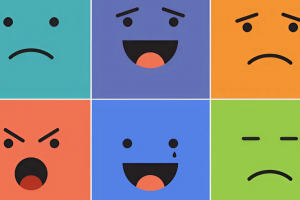Oddly enough, that’s basically the end of the debunking right there. Reich goes on to list a number of grievances, but never really gets around to explaining how he defines socialism or why taxing the rich doesn’t fall in that category.
“Here’s a lie you’ll hear on conservative talk radio: ‘Taxing the rich is socialism.’ Bunk!” So begins Robert Reich’s “debunking” of Myth #7, aptly titled “Taxing the rich is socialism.” “Far from being a socialist country, the United States provides corporate welfare for the rich, while subjecting everyone else to the harshest form of capitalism in the world.”
Oddly enough, that’s basically the end of the debunking right there. Reich goes on to list a number of grievances, but never really gets around to explaining how he defines socialism or why taxing the rich doesn’t fall in that category. We’ve learned that corporate welfare for the rich is incompatible with his definition of socialism, and that’s about it.
To bring some clarity to this matter, let’s first consider the actual topic of the video. Once that’s covered, we can chase down a few of Reich’s red herrings.
Defining ‘Socialism’
Reich is correct that you’ll often hear conservative (and libertarian) commentators throw around the word socialism to describe things like taxing the rich. But is that an accurate label for this practice? Well, it depends on how we define socialism.
To my knowledge, there are essentially two definitions. The first defines socialism as an economic system characterized by social ownership of the means of production. Self-described socialists seem to differ on whether that means government ownership, worker co-ops, or some other kind of “communal” ownership structure, but they all agree that capitalistic private ownership is a non-starter.
The second definition of socialism is basically any government intervention in the economy, such as taxes and regulations. The idea is that since the government is the “socialized” way of doing things, whereas the free market is the “capitalist” way of doing things, any policy that involves less free market and more government can be thought of as a “socialist” policy.
It was this second definition that Leonard Read had in mind when he inveighed against socialism in his 1964 book Anything That’s Peaceful. “For it is clear,” he wrote,
that the extent to which government has departed from the original design of inhibiting the unpeaceful and destructive actions; the extent to which government has invaded the peaceful, productive, creative areas; the extent to which our government has assumed the responsibility for the security, welfare, and prosperity of the citizenry is a measure of the extent to which socialism—communism, if you choose—has developed in this land of ours.
As we can see, taxing the rich is not really socialism under the first definition, but it is absolutely socialism under the second definition.
So is Reich correct? Personally, the first definition feels like a better way of using the term, at least in 2024. Statism is probably a better word for the latter concept. So I would agree with Reich that it’s a bit misleading to say “Taxing the rich is socialism.” But I would also say that Reich is being somewhat pedantic here. Clearly, when right-wing commentators are talking about socialism in this context, they’re using that word the way Leonard Read was using it. You can argue they should be more precise with their language, but accusing them of promoting an economic “myth” is really overstating the point.
At the end of the day, this is really just a semantic debate. Semantics are important, of course. “The beginning of wisdom is to call things by their proper name,” said Confucious. And Orwell certainly made a convincing case that rhetoric matters. But while we shouldn’t neglect discussions about rhetoric, we also shouldn’t allow them to consume the entire intellectual landscape, as they often seem to. Yes, euphemisms and equivocations need to be called out, but eventually we also need to move the conversation in a more substantive direction.
Regardless of whether taxing the rich counts as “socialism,” is it a good idea? Is it moral? Is it conducive to prosperity? These are the questions we need to be arguing about if we’re going to make any real headway.
The True Enemy of the Poor
Now let’s look at the rest of the video, picking up where we left off:
Most Americans who lose their jobs are not eligible for unemployment benefits. Less than 30 percent of working Americans have access to paid family leave. Only 36 percent of Americans have government-subsidized health insurance. And while people in most other countries get 3–5 weeks of paid vacation, Americans on average only get 11 days.
Executives who run their companies into the ground are getting gold-plated exit packages, while their workers get pink slips.
He gives a couple of examples of this last point, and then continues:
Meanwhile, thousands of big American corporations are raking in billions each year in government subsidies, bailouts, and tax loopholes—all funded on the taxpayer’s dime—when their workers have to rely on programs like food stamps and Medicaid. Corporations that don’t pay their workers a living wage in effect get fat government subsidies. This government largesse raises stock prices for the richest one percent, who own half of the stock market, as well as CEOs and other top executives, who are paid largely in shares of stock.
The money is there, money that could instead be used for more generous social safety nets. But we’re using it to pad the pockets of the wealthy.
Broadly, Reich is saying that the social safety net is too meager and corporate welfare is too generous.
The second part of that complaint will meet no resistance here. While tax “loopholes” don’t really count as subsidies, actual subsidies and bailouts are certainly at odds with the free market, and should be done away with as quickly as possible.
But while Reich would have the government use the extra money for a larger social safety net, the better course of action would be to simply give taxpayers a much-needed break. Robbing Peter to pay Paul creates problematic incentives and is morally questionable to say the least.
And what about the poor? There is a far better way of helping them than piling on more handouts: get the government out of their way.
Reich depicts greedy corporations as the chief antagonists of the poor and the government as their defender. But this has it completely backwards. The reality is that businesses are a great benefactor of the poor, and it is the government that is by far their biggest menace.
By offering gainful employment on a voluntary basis, businesses create opportunities for the poor to enrich themselves. On the other hand, by enforcing layer upon layer of compulsory taxes and regulations, the government gets in the way of such mutually beneficial arrangements and cripples the economy, protecting inefficient enterprises from competition and stifling entrepreneurial initiative. If the government would simply back off and allow the free market to function, productivity would increase tremendously, and the living standards of all, including the poor, would rise considerably.
Even taxing the rich—to bring this full circle—is also detrimental to the poor. How so? Because it shifts resources from the private sector, where they are used productively, to the public sector, where they are used wastefully.
“What the advocates of all expropriation schemes fail to realize is that property in private hands used for the production of goods and services for the market is already for all practical purposes public wealth,” wrote Henry Hazlitt. “It is serving the public just as much as—in fact, far more effectively than—if it were owned and operated by the government.”
It’s not your employer who’s holding you back from a better life. It’s the state.
The Real Welfare in America I 10 Economic Myths Debunked #7

























